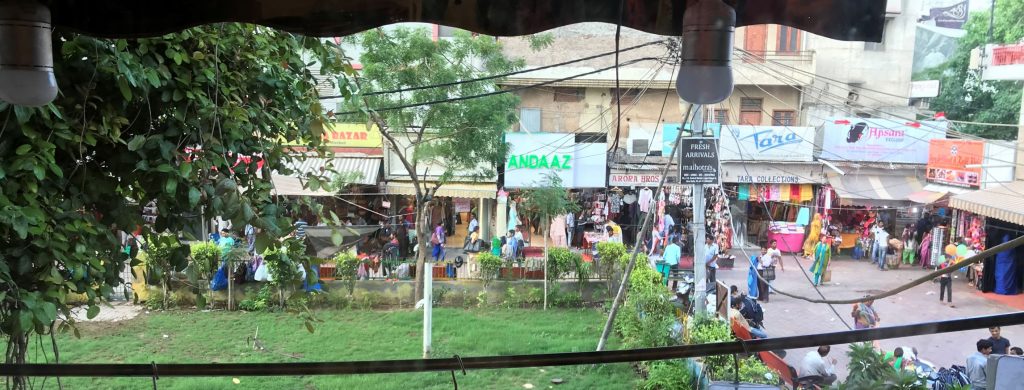
From the minute we walked through the door into our homestay family’s apartment, we were treated like family. We were greeted by warm welcomes and the most delicious food and cold coffee. Our homestay weekend started off in their living room, which was filled with decorations depicting the travels of our homestay father. We sat in the living room for about two hours listening to all of the stories of our homestay father’s life. The stories were laced with descriptions of a man in Germany who hosted our homestay father during the years he lived there. After hearing many stories of our host father’s travels, the topic of discussion switched to questions about religion. Throughout the last two weeks, one observation we have made is how integrated religion is in Indian culture. We learned that one piece of framed artwork in the apartment represented the humanity and respect that is central to Sikhism. This opened the door to allow us to ask more questions about the Sikh religion. One of the main takeaways we found interesting was that in Sikhism, everyone is treated as equals.
From the minute we walked through the door into our homestay family’s apartment, we were treated like family. We were greeted by warm welcomes and the most delicious food and cold coffee.
Our homestay family had a different family structure than the couple of Indian families we had seen during our first few weeks. The family was composed of a husband, wife, daughter, and son. Unlike other families, the wife of this family worked while the husband stayed at home most of the day or ran household errands. The daughter also worked as a nutritionist. We were able to see a sort of cultural evolution through the generations of this family. The father and mother were of an arranged marriage in which they did not know each other before the wedding. However, their son had both known and introduced his wife to his family before they were married. Today in India, it is common for families to still arrange marriages for their children, since one way in which parents express love towards their children is by maintaining a lifetime of assumed responsibility for their children’s happiness. However, typically today the two parties know each other first and then go to their parents for approval.
Throughout the last two weeks, one observation we have made is how integrated religion is in Indian culture. We learned that one piece of framed artwork in the apartment represented the humanity and respect that is central to Sikhism. This opened the door to allow us to ask more questions about the Sikh religion.
Additionally, the family had a woman who cooked for them and another who did house chores. Although these were people who were hired to work for the family, they were considered just as much a part of the family. Sometimes the people working for a family have to sit apart from the family and are not allowed to use the goods and furniture of the home—a reflection of the historic caste system. However, our homestay family made sure that even the people they employed felt at home and insisted that they eat with the family.
All students who had, and who will have, the opportunity to spend time with this family are lucky—we wish we could have spent longer than three days, but the time we did have was infinitely valuable.
